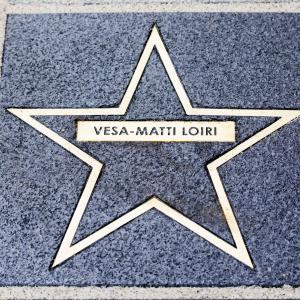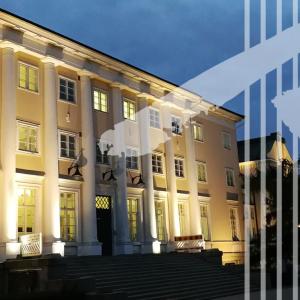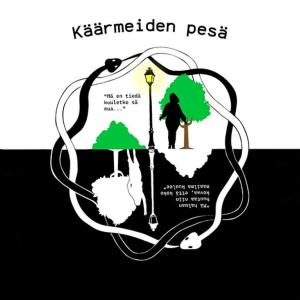Etusivu
Oikopolut etsityimpiin palveluihin
Sisältö aihepiireittäin
Uutiset ja artikkelit
-
Tampereelle maailman ensimmäinen elämystalouden professuuri
| UutinenTampereen kaupunki ja Tampereen yliopisto perustavat yhdessä elämystalouden työelämäprofessuurin. Professuuri on laatuaan maailman ensimmäinen. Elämystalouden professuurin sekä tutkimus- ja koulutuskokonaisuuden avulla tutkitaan elämystalouden roolia ja mahdollisuuksia Suomessa sekä koulutetaan alan tulevia osaajia. -
Taloyhtiöille neuvontaa pyöräpysäköinnin parantamiseen
| Uutinen -
Kannanotto: Tampereen kaupungin vammaisneuvosto pelkää, että vammaisyhdistykset eivät toivu avustusten leikkauksista
| Uutinen -
Ehdota suosikkiasi musiikkialalta Tähtikadun tähden saajaksi
| Uutinen -
Tampere palkitsi ammattitaiteilijoitaan
| Uutinen -
Tampereen kaupunginhallituksen konsernijaosto myönsi Finnpark Oy:lle luvan perustaa uuden tytäryhtiön
| Uutinen -
Konsernijaosto esittää Suomen Hopealinja Oy:n pääomittamista 2 miljoonalla eurolla
| Uutinen
Etsitkö tietoa elämäntilanteesi perusteella?
Osallistu ja vaikuta kaupunkiisi
Tampereella tapahtuu
Tampere on tapahtumakaupunki! Katso tästä lähimmät tulevat tapahtumat. Tapahtumat aukeavat Tampereen tapahtumakalenterissa tapahtumat.tampere.fi. Tapahtumakalenteriin siirtymällä näet kaikki tulevat tapahtumat ja voit suodattaa niitä eri tavoin. Tampereen kaupunki ei vastaa muiden tapahtumajärjestäjien tapahtumista.
-
Sateenkaareva internet: Suhteet
24.4.2024 18.00 | Postimuseo, Alaverstaanraitti 5, 33101 Tampere -
Masa Orpana: Saksofoni roots-musiikissa
24.4.2024 18.00 | Pääkirjasto Metso, Pirkankatu 2, 33210 Tampere -
Uutislukupiiri: Millainen otsikko saa lukemaan uutisen?
24.4.2024 18.00 | Lielahden kirjasto, Antti Possin Kuja 1, 33400 Tampere -
Käyrätorvitaitureiden ilta
24.4.2024 18.00 | Kulttuuritalo Laikku, Musiikkisali, Keskustori 4, 33100 Tampere -
ALIVENESS esitysluonnokset
24.4.2024 18.00 | Hällä-näyttämö, Hämeenkatu 25, 33200 Tampere -
Teatteri Ääriraja esittää: Käärmeiden pesä
24.4.2024 18.00 | Kuntokatu 3, 33520 Tampere -
Kaupunkiviljely tutuksi -kurssi
24.4.2024 18.00 | Mustanlahdenkatu 22, 33210 Tampere -
Lue Luppakorvalle Tesomalla
24.4.2024 18.00 | Tesoman kirjasto -
Tanssiteatteri MD: Aliveness esitysluonnos
24.4.2024 18.00 | Hällä-näyttämö, Hämeenkatu 25, 33200 TAMPERE
Tampere - tekemisen kaupunki
Tampere on tunnettu asioiden rohkeasta toteuttamisesta, aikaansaamisesta sekä määrätietoisesta kehittämisestä. Tampere on Tekemisen kaupunki, jossa työskennellään kaupunkilaisten yhdenvertaisuuden, yhteisöllisyyden, edelläkävijyyden sekä kestävämmän tulevaisuuden puolesta.

Sivun pääkuva: Saarni Säilynoja / Vapriikki



















